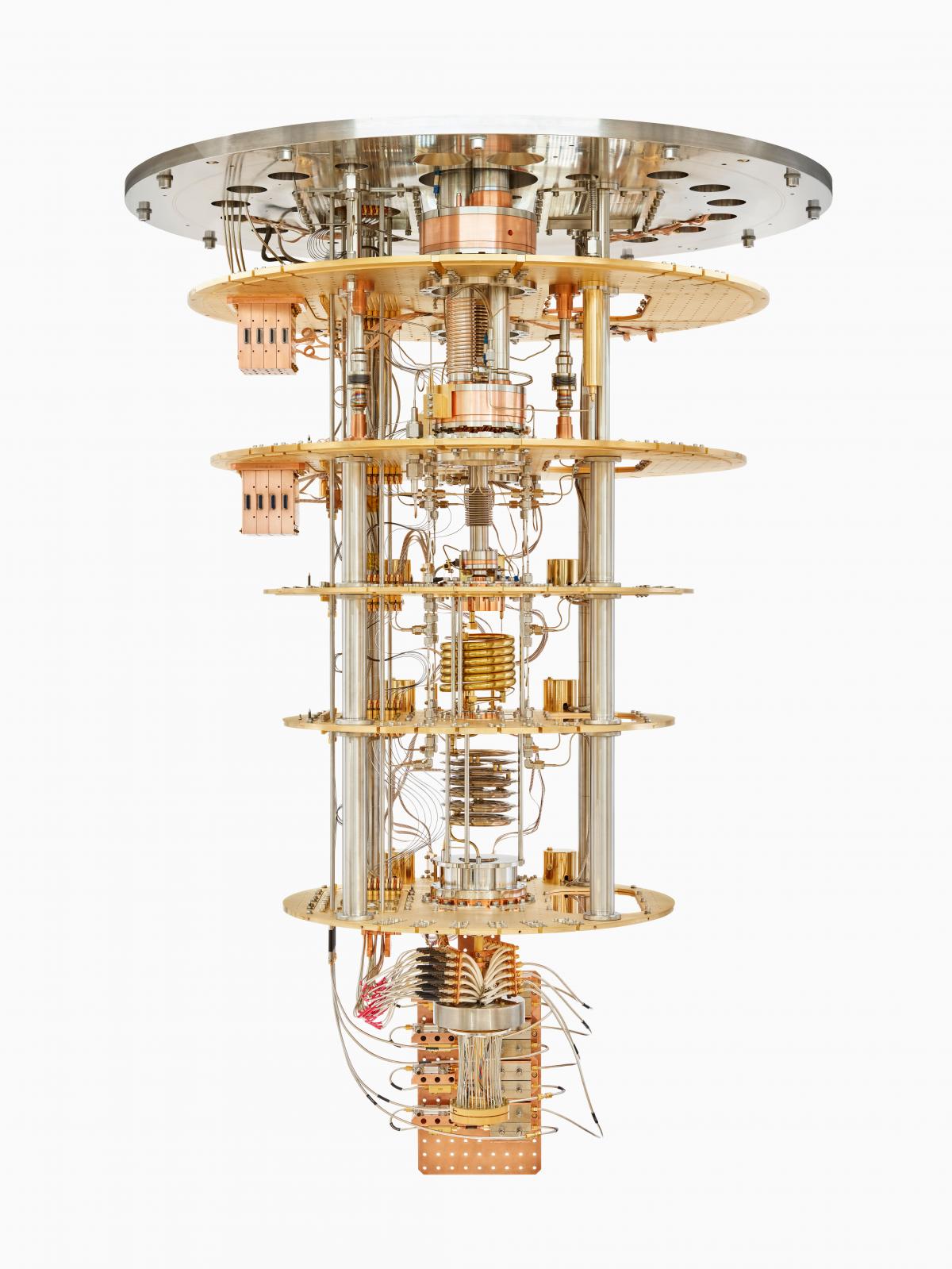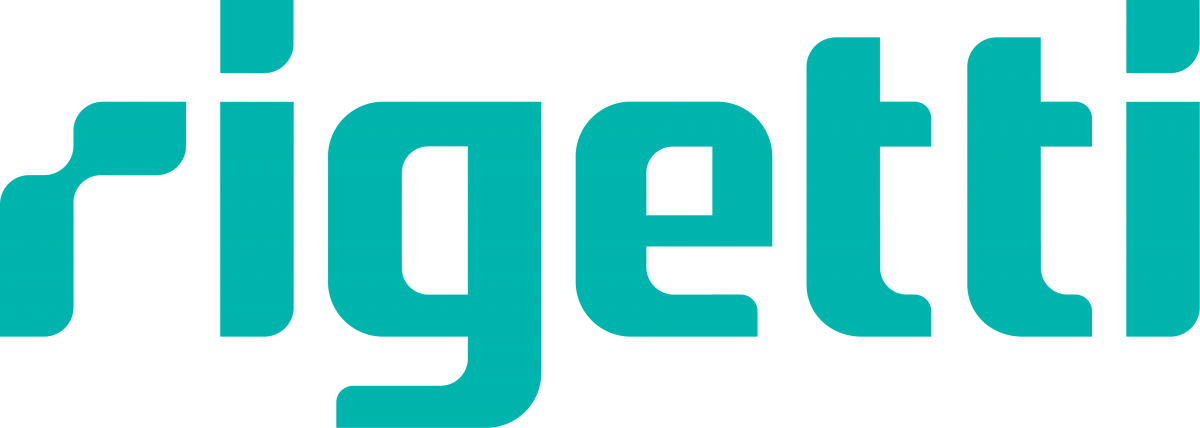Applications
 Part of the Oxford Instruments Group
Part of the Oxford Instruments Group
Expand
Collapse
We’ve reached an important milestone in working toward the UK’s vision of a quantum-enabled economy. Our team completed the set-up of a Rigetti quantum computer in the UK. The quantum system has been assembled and is now moving into testing and Quantum Processing Unit (QPU) characterisation and selection. This has only been possible through several other important achievements by the team, such as the delivery of the ProteoxLX cooling system and the set-up of the computing facility infrastructure by Oxford Instruments.
While we were building the computer, Phasecraft, the University of Edinburgh, and Standard Chartered developed several prototypes in materials simulation, quantum machine learning, and quantum verification and error mitigation, by accessing Rigetti’s quantum systems through QCS (Quantum Cloud Services) hosted in the US.
Quantum computing will revolutionize the way we solve some of humanity’s most important problems.
Today we’re focused on practical and pressing problems such as those advancing environmental stewardship and renewable energy. Our partners at Phasecraft, for example, are enabling development of higher-performance batteries and solar cells by solving materials modelling problems beyond the capacity of today’s best supercomputers. Phasecraft's algorithms and software have reduced the complexity of existing materials modelling algorithms by orders of magnitude, bringing quantum-mechanical simulation problems closer to feasibility on near-term quantum computers.
In partnership with Standard Chartered, we’re experimenting with how quantum machine learning can improve volatility predictions in financial markets. Going forward, Standard Chartered is also exploring large scale environmental, social, and governance challenges. We anticipate quantum machine learning breakthroughs, such as those that Standard Chartered are currently pursuing, will be applicable not only to the financial sector, but to a broader range of applications.
For infrastructure, this project requires tight collaboration between OI and Rigetti. Rigetti is hosted inside OI’s facility at Tubney Wood, where OI provides the equipment and infrastructure to operate the Proteox fridge in a resilient way, enabling long-term commercial operation of a quantum computer. OI and Rigetti collaborated closely to define the specifications to reach the project goals.
More broadly, for the applications, Rigetti provides cloud-based quantum computing access to Phasecraft, the University of Edinburgh, and Standard Chartered. Over the past year, our partners developed and tailored software for Rigetti’s system in collaboration with Rigetti’s team. With Phasecraft, Rigetti supports as subject matter experts on Rigetti’s system. For the quantum machine learning (QML) developments with Standard Chartered and the University of Edinburgh, Rigetti participates directly in development activities.
The QML work, a collaboration of Standard Chartered, the University of Edinburgh and Rigetti, illustrates the approach and diversity of skills necessary to develop a quantum application. The ultimate goal of the QML work is to develop a quantum application that outperforms classical machine learning methods on a real-world finance problem. We are pursuing this goal leveraging a variety of skills and capabilities. The University of Edinburgh supports foundational QML approaches. Rigetti engineers quantum software and hardware. Standard Chartered delivers computational finance domain expertise. Our collaboration includes activities such as regular discussions and joint software development. We start with small-scale problems, identify bottlenecks, and remove the obstacles to scaling. All three parties are on the journey of rapidly learning how to best pursue quantum advantage with their unique strengths and contributions to the collaboration.
This experience has been very positive for Rigetti. In addition to the excellent infrastructure and support OI is providing as part of the collaboration, Rigetti very much appreciated the frequent exchange on technical questions and the help in getting set up in the UK, for example by supporting us in establishing our UK supply chain.
The experience has been quite valuable for Rigetti. We learned how to set up a QPU outside of our primary computing facility. We learned how to plan a project of this scale from scratch within tight timelines, delivering on time and within projected costs. We developed our ability to coordinate internationally to deliver all necessary parts. We grew our partnering skills in working with OI to set up the facility and integrate our system with the ProteoxLX. In the course of this project we established a new team in the UK and gained valuable insights into how to structure a broadly skilled team to get a project like this off the ground quickly.

The new ProteoxLX system has the capacity to support future scale-ups of the QPU system unlike other systems on the market, both in terms of shear size and in terms of cooling power. Another interesting feature for us is the secondary insert, which allows us to assemble and test parts of the fridge buildout, such as the signal chain, remotely or while the fridge is in operation with a different build-out.
This allows us to change configuration or scale to larger systems with minimal downtime. Furthermore, for Rigetti, integrating our systems with the ProteoxLX has been a great opportunity to create resiliency in our supply chain and develop a different and new set-up from our US-based systems.
The system we have built in the UK is designed to be easily scalable to larger numbers of qubits and more advanced architectures. This is particularly important because Rigetti plans to keep this UK-based system cutting-edge by upgrading the system as new processors become available.
We are currently targeting commercial availability in early 2022.
Over the next 5 years, we will pursue the first, and perhaps several, demonstrations of quantum advantage - that is the ability for a quantum computer to solve a real-world problem better, faster, or cheaper than is currently possible with classical computers.
To do this, we are pursuing continuous, rapid improvements in both scale and performance for the quantum hardware, which includes bringing in more partners from different industries and application areas. We will work with these partners to help us develop the hardware best suited for these instances of “narrow” quantum advantage that will ultimately become more generalized to achieve broad quantum advantage.
We will also work in partnership for algorithm and applications expertise. This complementary domain expertise will accelerate development as we learn more about the constraints of the current system compared to the scale and performance requirements for the practical but complex problems that are within reach for noisy, intermediate-scale quantum (NISQ) systems.
We will continue the pursuit of quantum advantage to solve practical and important problems with our partners, especially applications that benefit from quantum machine learning or that require modeling and simulation of quantum-mechanics (such as materials science and chemistry problems). We will focus on scaling the current application prototypes to larger qubit counts while mitigating computational errors. We plan to upgrade the system and deploy a larger, higher quality QPU in the second half of 2022 while advancing high uptime fridge and hosting operations. We will engage with organisations (enterprises, academia, government) with real-world problems that could benefit from quantum algorithms. A larger and more performant system, improved algorithms and applications and engagements with end-users will all contribute towards quantum advantage, a key goal for our consortium and the quantum computing industry more broadly.
